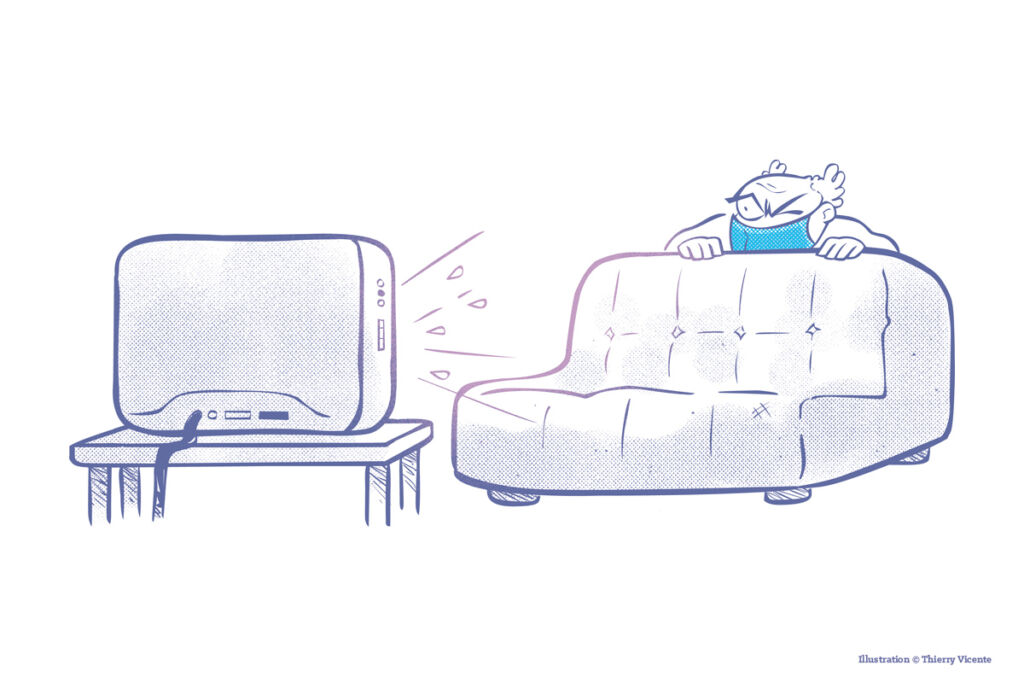[LUM#13] “Restoring trust”
From March 17 to May 11, 2020, France experienced a completely unprecedented situation. Eight weeks of lockdown, which everyone experienced differently. How and why did the French comply or fail to comply with the rules imposed? To better understand this thorny issue, Marlène Guillon and Pauline Kergall conducted an investigation.

Why conduct a survey on lockdown? "Because we had time for it while we were confined," jokes Marlène Guillon from the Montpellier Research in Economics Laboratory*. But above all because, from the very beginning of this unusual period, the researcher noticed that the reactions of those around her to this new situation varied greatly. "Some people played along very strictly, while others didn't at all, continuing to go out and gather despite the guidelines in place. So I wanted to find a way to understand these different attitudes."
Together with Pauline Kergall, a doctoral student at the MRE laboratory, they created an online questionnaire and recruited more than 1,900 volunteers between April 16 and 30. Salary, work situation during lockdown, perception of their state of health, number of outings per week, confidence in the government's handling of the crisis—in total, the volunteers answered 57 questions designed to better understand their relationship to lockdown.
Trust issue
Marlène Guillon and Pauline Kergall then sifted through the volunteers' responses. Among the major trends emerging from the survey, the researchers noted that attitudes toward lockdown were directly correlated with several factors, including: the perceived threat posed by COVID-19, the perceived benefits of lockdown, well-being during this period (see box), and confidence in the government's handling of the crisis.
"Overall, 74% of respondents said they somewhat or completely agreed with the lockdown," say the researchers, who admit to having been surprised that the measure was so overwhelmingly supported. "It seems that this was the only thing that appeared effective to them, probably because at that point there was nothing else," suggests Marlène Guillon.
Because during the second half of April, the situation may seem confusing: "There is a shortage of masks and tests, and the debate over hydroxychloroquine is dominating the media," Marlène Guillon points out. As a result, only 30% of volunteers say they trust the government to manage the crisis. This percentage declined over the two weeks of the survey. Yet trust is a major issue: "Those who said they trusted the government to manage this crisis were also the ones who most complied with the rules enacted during lockdown, " says Pauline Kergall.
Digital tracking
Trust is essential for compliance with lockdown measures. But that's not all. The researchers also used this survey to explore French people's feelings about the digital tracking app now known as StopCovid, which was being developed at the time. The principle behind the app is to trace the contacts of an infected person using their cell phone. "We wanted to find out whether the French would be willing to use it by asking two questions: do you consider this type of app acceptable, and are you likely to install it?" they explain. At the time, 42% of volunteers considered such an app to be somewhat or totally acceptable.
"Those who found this app unacceptable were precisely those who had the least confidence in the government, " the researchers note. "This is a key lesson, as it is estimated that 70% of the population would need to install the app for it to be fully effective, " they explain. This lesson could also prove very useful in the event of further lockdowns. "This information could help determine the communication strategies to be put in place to accompany such measures, in order to restore confidence."
Well-being objective
During lockdown, did you feel isolated, depressed, stressed, anxious, or bored? Never, rarely, sometimes, often, or all the time? Using these questions, Marlène Guillon and Pauline Kergall determined a "well-being index" for the volunteers. "Based on the responses, this index was scored from 0 to 16," explain the researchers, who made the following observation: those with a high well-being index who coped relatively well with lockdown were also those who adhered to it the most. "We noted in particular that those with the lowest well-being index were also those who reported going out the most, for example," explains Pauline Kergall. "To improve compliance with lockdown, it is therefore important to support those who are not coping well, for example by setting up remote psychological support services, " recommend the researchers.
Find UM podcasts now available on your favorite platform (Spotify, Deezer, Apple Podcasts, Amazon Music, etc.).
*MRE: Host team 7491 (UM)